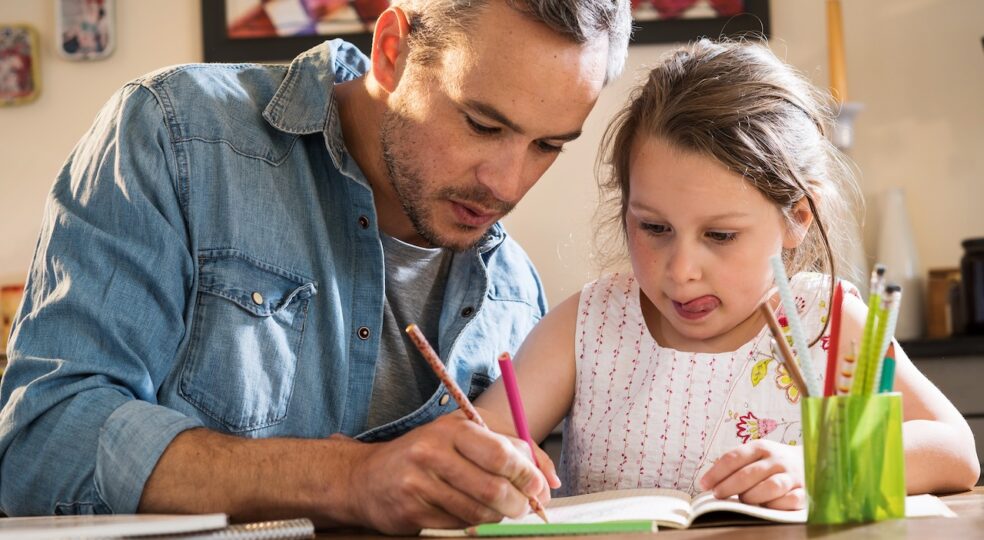
Is your child diligently practicing for school, but little to no progress is evident? It is normal for every student to go through a bad phase. However, if the problem persists over a longer period of time, it could be a learning disability. In the following, you will learn how to recognize a learning disability in your child and how to provide targeted support.
We speak of a learning disability when development is impaired in terms of learning progress. Put simply, your child's ability is significantly behind his or her peers or the average for his or her age across all subjects. According to current Studies around 13.3 % of all primary school pupils suffer from a learning disability.
It is important to know that this circumstance not must be due to lower intelligence. Children with a learning disability are usually just as intelligent as their classmates. At this point, the learning disability must be clearly distinguished from the Learning Disability which is associated with a lowered IQ.
The causes of a learning disability can be manifold. Often it is an interaction of several factors. In addition to a genetic disposition, diagnoses such as ADHD or autism can also play a role. Sometimes a learning disability also masks a massive fear of school.
Once the term learning disability is mentioned, it comes as quite a shock to many parents. This is understandable, after all, you want your child to have all opportunities open to him or her in life. Unbiased learning can be difficult or even impossible under this pressure. In such situations, targeted support from outside is needed, which a Learning Coach can afford.
A learning coach supports your child in recognizing his or her own strengths and using them positively. In doing so, he or she addresses the individual Needs of your child. The support of professional learning coaching not only improves the current school situation, but also helps your child acquire the tools for lifelong successful learning.
Tip: Even you, as a parent, can train to become a Learning Coach to support your child and, if necessary, other children. To get started, we recommend our free E-Book.

Before we turn to the diagnostic pathway, it is useful to first get an overview of the different types of learning disabilities. Indeed, depending on the type of learning disability, the possible support differs. The following types exist:
If you suspect a learning disability in your child, you should definitely follow up on this suspicion in order to avoid disadvantages for your child at school and later at work. The necessary steps can look like this, for example:
Step one: Talk to your child's teachers. Do they share your impression that there might be a learning disability? Depending on their age, involve your child and ask them how they experience the situation and which learning tasks are particularly difficult for them.
Step two: Contact your pediatrician, who will in turn refer your child to other specialists. These may include neurologists, child psychologists, ophthalmologists or ENT specialists. The latter is important because decreased hearing and vision can also affect learning ability.
Step Three: To diagnose a learning disability, the following tests can be performed by a specialist:
Step four: Once a learning disability has been diagnosed, the next step is to find appropriate support for the child. This may involve special TutoringIt can also be a learning program, a support program or a learning coaching. You can find a scientifically based guide here.
You as a parent are directly confronted with your child's learning disability, e.g., at the joint learning or in the supervision of homework. If a learning disability has been discovered, you should talk to your child about it. Prepare your child for the fact that there will probably not be any quick improvements, but that diligence and perseverance are necessary in the long term. This will help you avoid disappointment.
When learning together, never miss an opportunity to praise successes - no matter how small they may be from an objective point of view. Children with learning difficulties need confirmation and a sense of achievement to rediscover the joy of learning. Do not build up pressure to perform and do not let your child feel your impatience.
How your child's teachers deal with the diagnosed learning disability has a significant influence on how your child develops at school. From the teacher's point of view patience and empathy required. Teachers should absolutely refrain from showing the child in front of the class or giving him/her the Feeling to convey that it will not understand the material anyway.
Instead, it is helpful to praise the child for small progress and to offer constant support. Teachers should Challenge children with learning disabilitieswithout overtaxing them. As already explained, a sense of achievement is elementary in order to maintain the joy of learning despite deficits. A regular exchange with the parents is also important.
A learning disability can be treated well, and you as a parent can play a fundamental role in this. The following strategies and techniques can support you:
You are the most important caregiver for your child. Encourage him to confide in you about what his Learning Difficulties concerning your child. Offer a sympathetic ear and your support without pressuring your child. Do not create pressure to perform and do not punish your child. Child not for bad gradeswhen you know it has done its best.
Dyslexia affects the entire school career - across all subjects. That's why it's even more important to encourage your child to read. Let your child choose child-friendly books that he or she is really interested in and read them together. Don't criticize your child if he or she reads haltingly and don't criticize his or her reading speed.
Forget about everything School stress please not that your child needs compensation. Moreover, you are not primarily a teacher, but still the mother or father. Family life benefits from shared experiences beyond learning and homework. In this way, you draw new strength together to face the challenge of learning disabilities.
Communicate with your child's teachers and make sure you are literally pulling together to support your child. Avoid misunderstandings and be open to the educators' observations, even if you as a parent may not like them. Of course, the same applies vice versa.
A learning disability is by no means synonymous with an unsuccessful (professional) life. You should always make this clear to your child. A learning disability can be successful therapy. The earlier it is detected, the better.
As far as career choices are concerned, your child is by no means limited. For example, there are even numerous authors with dyslexia or scientists with dyscalculia, such as following overview shows.
Learning disabilities can make school careers massively more difficult. This is especially true if they go untreated. Your children depend on your support in order to receive the right support. Therefore, as a parent, you should take action if you suspect a learning disability in your child. If this suspicion turns out to be true, it is important to look for solution strategies together.
At best, parents, teachers and children work hand in hand to find the appropriate support and maintain it continuously. In many cases, the children can then successfully manage their school careers. A learning coach can also support you in this process.
Furthermore, it is important to Boost your child's self-confidence. A learning disability has nothing to do with reduced intelligence! An essential part of the therapy of learning disabilities is to promote the individual strengths of the child.

